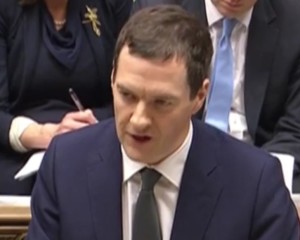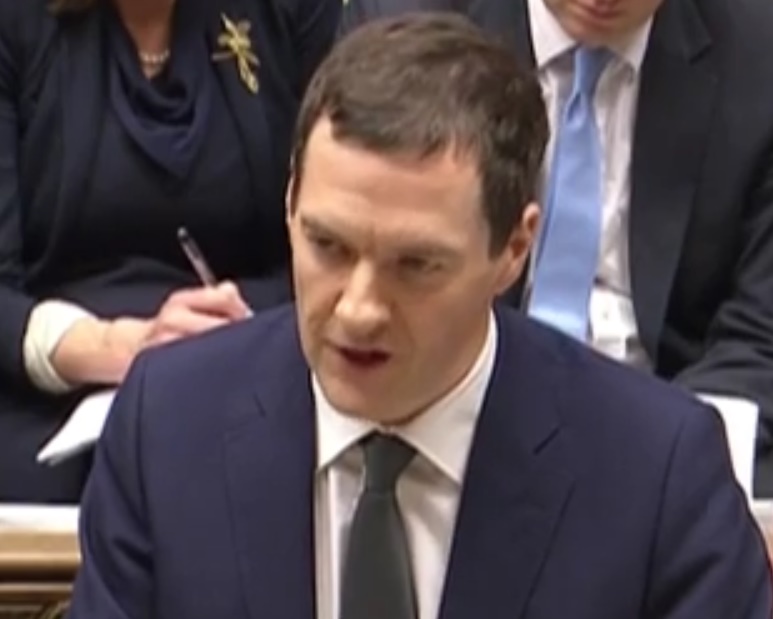Brighton and Hove’s Labour party has pledged to explore starting its own trust to run any schools forced to turn into academies under new plans announced by the government today.

As widely anticipated, the Chancellor George Osborne said in his budget speech this afternoon that he was setting aside £1.5 billion to turn all secondary and primary schools into academies.
They are due to be academies or be on track to become academies by 2020, ending more than a century of council control of local education.
But the leader of Brighton and Hove City Council Warren Morgan immediately released a statement saying that his group would look at forming its own trust to prevent multi-academy trusts from “cherry-picking” the city’s popular schools.

He said: “If the government insists on this approach then we intend to look at establishing a co-operative trust to run our schools, maintaining as much local control as possible and preventing multi-academy trusts from cherry-picking the popular schools and leaving the rest to struggle.
“We want all schools in the city to be excellent schools and will work on defending them from what is an ideological assault on both education and local councils.
“Ofsted has already highlighted serious concerns about some multi-academy trusts (MATs) and the performance in their schools and with 82 per cent of local authority maintained schools rated either good or outstanding it’s hard to justify forcing schools to become an academy.
“Forcing schools to become an academy and join a MAT takes the focus in the school away from improvement and the outcomes of the children and instead focuses their attention to the conversion.
“MATs and especially some of the larger chains are becoming more and more centralised, removing local governing bodies and distancing themselves further away from the school they run.
“The government needs to recognise that local authorities are in a unique position of having the best knowledge for the local area which is essential to plan school places and ensure provisions are equally and appropriately distributed.
“The government is taking this ability away from local authorities, which will lead, in the future, to greater inequality and disparities between schools.
“We need our schools to be focused on the outcomes of children not worrying about their external structure and how they will be maintained. Our schools need to be locally accountable to parents, governors and communities. Forcing schools to join large MATs denies local residents this fundamental right.”

Academy schools are are directly funded by the Department for Education and independent of local authority control. They are self-governing non-profit charitable trusts and may receive additional support from personal or corporate sponsors, either financially or in kind.
They must meet the same national curriculum core subject requirements as other state schools, although they don’t have to follow the whole curriculum, and are subject to inspection by Ofsted.
Brighton and Hove currently has three academies – the Brighton Aldridge Community Academy (BACA) and Portslade Aldridge Community Academy (PACA), both secondary schools run by the Aldridge Foundation, and City Academy Whitehawk, a primary run by City College.
It also has two free schools – the King’s School, a secondary, and the Bilingual Primary School in Hove. Brighton University is also planning to open a new secondary free school in 2018.
A parent-led campaign in 2014 succeeded in stopping Hove Park School being turned into an academy.
Councillor Alex Phillips, who leads on education for the Greens, said: “It’s a shame that we have to look at these things. Let’s not forget it was Labour who brought in academies in the first place.

“This city has resisted academy status very successfully. We are one of the only places in the country to have successfully resisted converter academies and the Greens played a significant role in the successful campaign to resist the conversion of Hove Park into an academy.
“It’s really problematic in areas like sex and relationship education. It’s only secondary maintained schools that have to teach it but there won’t be any left. Caroline Lucas (the Green MP for Brighton Pavilion) has campaigned about this.”
She said that the Greens would broadly support a co-operative model but feared that the government would treat it as a loophole to be closed.
She added: “We might have a short-term win and it’s something we would be supportive of but Labour brought in academies.
“We’re the only party that’s been consistently against the privatisation of our education system.”
Councillor Andrew Wealls, a Conservative who helped the founders of the Bilingual Primary School and who has spoken out about educational standards in the area, said: “I have never believed the conversion of all local authority maintained schools to academy status is the sole answer to the question of challenges in Brighton and Hove’s schools.
“However, the idea that the local authority currently runs our maintained schools is a bit of a myth since schools already have a great deal of autonomy.

“Academy status would give them additional control over their curriculum and teachers’ pay but I understand admissions could be fully returned to local authority control thereby ensuring academies couldn’t game the system.
“The key question is what value the local authority currently adds to our schools and the consequences of the loss of that resource.
“To me it is more evident in the primary sector and there will need to be imaginary and innovative ways primary schools can be grouped to ensure improving standards and sharing of resources and best practice.
“It is not clear to me that the local authority has driven innovation in either the primary or secondary sectors in the city but it has facilitated co-operation.
“There is no reason why that could not happen under an academised system. BACA and PACA already are fully engaged while in the past there have been instances where engagement has been questionable from some local authority maintained schools.
“I believe we ought to be looking at this as an opportunity, rather than a threat, to deliver a genuinely outstanding school system in Brighton and Hove, open to innovation and driving standards higher.
“Too many children and young people, particularly from disadvantaged backgrounds, have been let down by our city’s schools in the past.
“It is that which ought to be the controversial issue of the day in Brighton and Hove, rather than whether our schools have academy status or not.”








